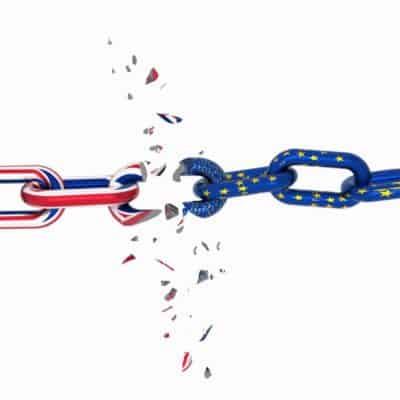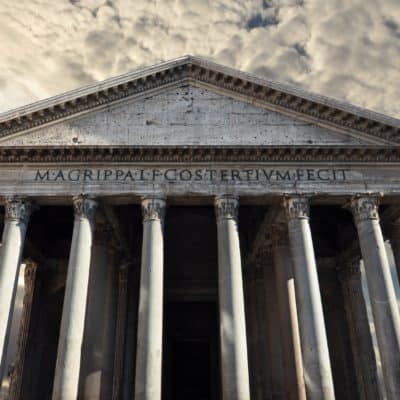Look at your life, what do you see? Is it peaceful, congenial agreement with your spouse, with your family, your friends? What about at work, where you spend so much of your time and energy? Those 40 hours of perfectly productive cooperation. Don’t we all wish that were the case.
Truth be told, disagreement is all too common. Hopefully our personal lives are full of love and congeniality, our work pleasant and satisfying. But look a little farther out, your town, city, state, nation. Disagreement surrounds us. Some are petty differences of opinion, matters of little real consequence. But how about the adage of avoiding politics and religion to maintain peaceful conversation? What is more important than the course taken by a nation or defining the purpose and proper manner of life?
The big issues, changes in the status quo or the desire to return to it, the righting of wrongs, that’s where visceral emotion often presents itself. Let’s look at a few current examples.
The Black Lives Matter movement, organized after the death of Trayvon Martin, has certainly been controversial. Most noticeable has been their participation in the Ferguson, MO and Baltimore, MA protests, both of which led to violence, more recently making news over the forced resignation of University of Missouri President Tim Wolfe. The group’s inflammatory rhetoric alleges “structural racism” in the United States of America, particularly regarding law enforcement.
Critics say their actions have made it harder for police to do their jobs and actually led to an increase in crime rates, something commentators label the “Ferguson Effect.” Others say 93% of black murders are perpetrated by other blacks and wonder why BLM doesn’t protest these deaths. Ben Carson, the only black presidential candidate in either party for the 2016 election, called the movement “silly” and said they should care for “all black lives, not just a few.”
Another hot-button issue is homosexuality and whether or not couples of this persuasion qualify for Holy Matrimony. That discussion has rocked the domestic moral landscape all year. Even Black Lives Matter lists “fostering a queer affirming network,” “freeing ourselves from the tight grip of heteronormative thinking,” and “transgender affirming” among their guiding principles. That is a shrewd stance to take when opinion polls showed 50-60% of the population in favor of overturning state-level same-sex marriage bans. On July 26, 2015 the United States Supreme Court ruled the bans unconstitutional, joining the upwards of 20 other countries worldwide where these unions were already legal.
This is a far cry from the traditional view of homosexuality as a perversion at times in history, and in some places even crossing the line into criminality and warranting capital punishment. As recently as 1973 the American Psychiatric Association considered it a mental disorder. Yet today even a bakery declining to make a wedding cake for such a service can be shut down by protest and sued for damages in a court of law. Kim Davis, clerk in Rowan County Kentucky, refused to issue marriage licenses to same-sex couples after the Supreme Court ruling, sparking protests against her as well as counter protests in her favor. Both sides naturally believed themselves to be right, on the side of justice.
How about terrorism? Average people going about their lives have been suddenly gunned down without warning. The attacks in Paris and San Bernardino are abhorrent to all of western civilization. Even the most asinine among us has a hard time justifying the murder of the unsuspecting, even if they claim to see the “rationale.”
But what do the perpetrators and their idealogical cohorts have to say about their actions? They consider themselves champions of a true faith dedicated to conquering the world in the name of Islam, the religion of peace. They say our culture, with its admittedly loose morals, is the scourge of the earth, calling the United States “the great Satan.” Sharia law, supposedly, will restore order and justice to the world.
However to us, living under a system like that seems inconceivably vile. The oppression and dependency of women, their very person reduced to a literal possession, is an abomination to westerners, the idea of beheading disgusting under any circumstances. It is a way of life that is diametrically opposed to our own.
Indeed, it’s tantamount to what so many have fought and died to do away with in Iraq and Afghanistan. Spending over a decade trying to install democracy and liberty, believing the mission helpful and uplifting to the people, has instead engendered resentment and talk of foreign invaders. Now we have ISIS sweeping the region, claiming victory and rendering the situation worse than ever.
These examples barely scratch the surface of life or the world as we know it. Disparate situations without number exist across the globe, yet they contain a common thread. People everywhere want to be right. Rarely are they intentionally, provably wrong, at least in their own minds. Sure people do things that are commonly considered bad on purpose, but even these actions satisfy a personal desire, some lust or greed. The character of Robin Hood combined crime and virtue in a heroic fashion.
The issues discussed have all motivated people to take extraordinary measures; Gathering in the streets, blocking traffic, setting fires, surrounding government buildings, forcing acknowledgment, showing strength in numbers, taking up arms, the laying down of life and taking the lives of others in brutal public chaos designed to intimidate.
But why? Why do the participants consider such extremes necessary? So that good will triumph over evil and for the establishment of righteousness. And what could be more noble, more selfless? But what, after all, is good? And what is evil?
In the book of Proverbs chapter 21, verse 2 begins “Every way of a man is right in his own eyes:” And don’t we find that to be the case? Rarely are any of us caught without an excuse, or at least an explanation for what we have done and why. Verse 2 finishes “but the Lord ponders the hearts.”
Both sides of each issue, whether we realize it or not, appeal to a higher power. Not in these examples only but many others; from the rights of immigrants to those of animals, from so called “blue laws” in the Bible Belt to the coming ice age… rather global warming… OK – call it climate change. Each figuratively points to a line in the sand, declaring one side right and the other wrong. People can change sides, taking the path of least resistance, going green, maybe even converting to save their lives, but the line remains unmoved.
That which is inherently good and inherently evil occupy opposing sides in each instance, but what separates them? Man, with his selfish and changing opinions? No, in each instance the cause is greater than the individual, as evidenced by the self-sacrifice so often involved.
Only God can draw the line. Only He, in purity and constancy, has defined the absolutes. Which side is which and where exactly the line lies is not always easy for us to ascertain, but we are not without resources. God, in His wisdom and mercy, has provided us with the answers to all of our problems. The keys to happiness, peace and prosperity, the things every person craves.
We have access to His inspired word, so crammed with knowledge and examples of His revealed will that many cannot easily comprehend it. They dismiss it without taking the time to understand or are unable to bear its implications in their own lives. No human, by its own admission, has or ever will be able to perfectly live up to its standards.
In Matthew chapter 7 verses 1 and 2, Christ said “Judge not, that you be not judged. For with what judgment you judge, you shall be judged…” Often this line is thrown in the teeth of those who would stand for traditional values or clearly defined biblical principles. Yet this modern addiction to progress is flawed.
How can universal acceptance deny the right of certain opinions even to exist? How can anything be right or wrong if everyone is allowed to define truth for themselves, let alone if the world is constantly evolving?
Hypocrisy is odious. Many who reject the watery pap nominal Christianity has become do so on its account. They see a flawed person and they assume a flawed system.
That, however, is not where the problem lies. We fall short only too often. Even those who claim “all you have to do is believe,” dwelling entirely on love and neglecting God’s revealed will in our lives, His law, His commandments, can’t hit the mark. Our works, the evidence of our faith, betray us.
First Corinthians Chapter 11 verse 31 says, “for if we would judge ourselves, we would not be judged.” What God has given us is in no way defective. We need to read it and apply it, “judge ourselves.” The human mind discovering itself, asserting and never restraining itself, is not righteousness. We can all benefit from humility, from honest self examination, and from acknowledging the power of the Highest. His will does not change, it is as immutable as the gravity binding us to this earth. We need His protection, His deliverance from many a moral crisis. Let His word banish the darkness, separate good from evil, and light our way.










